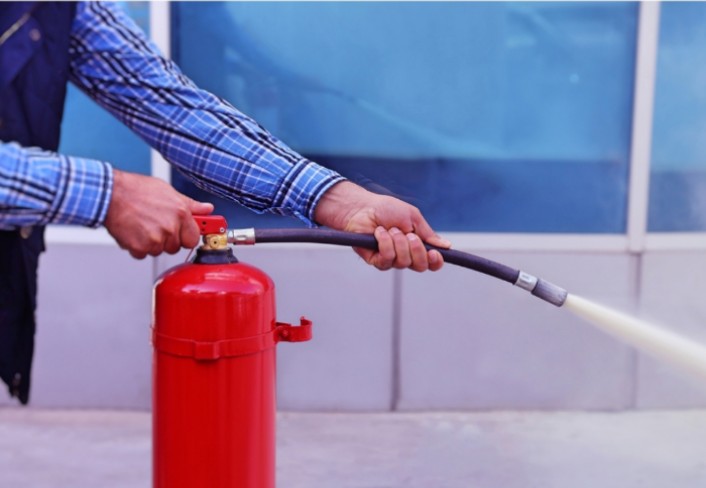The Importance of Fire Safety Education: What Every Family Should Know

Fire safety is one of the most critical aspects of keeping your family safe at home. Unfortunately, many households underestimate the potential danger fires pose, assuming they will never experience one. However, fire incidents can happen unexpectedly, and being unprepared can lead to tragic consequences. Conducting regular Fire Risk Assessments in London is a proactive step in identifying fire hazards and ensuring your home is as safe as possible. Understanding the importance of fire safety education is key to ensuring your family’s safety.
Why Fire Safety Education is Essential
Fire safety education is not just for adults or workplaces; it is essential for everyone, including children. A well-educated family is more likely to react calmly and efficiently in the event of a fire. Knowing the basics of fire prevention, escape planning, and emergency response can drastically reduce the risk of injury or even death.
Fires can spread rapidly, often giving families less than two minutes to evacuate. Without a clear understanding of what to do, panic can set in, leading to poor decisions that could cost lives. Fire safety education ensures that every family member knows how to respond in a way that maximizes safety.
Teaching Children About Fire Safety
Children are naturally curious, and that curiosity often extends to playing with fire. Unfortunately, this can lead to dangerous situations. Teaching your children about fire safety from an early age is vital. They need to understand that fire is not a toy and that it is essential to follow safety rules to prevent accidents.
Start by explaining what causes fires and how dangerous they can be. Reinforce the importance of not playing with matches, lighters, or electrical outlets. Demonstrate safe behavior, like how to “Stop, Drop, and Roll” if their clothing catches fire. Having open conversations about fire hazards will help children understand the seriousness of the issue and what they can do to stay safe.
The Importance of Fire Escape Plans
One of the most critical components of fire safety education is having a fire escape plan. A fire escape plan outlines the safest routes to exit the home in case of an emergency. Every family member should know the plan by heart and be able to execute it without hesitation.
When creating a fire escape plan, consider the layout of your home. Identify two exits from each room and mark them clearly. Make sure everyone knows where the designated meeting point outside the house is, whether it’s a neighbor’s driveway or a tree in the front yard.
Practicing the fire escape plan regularly is just as important as creating it. Ensure that everyone, including young children, is familiar with the process. Fire drills should be done a few times a year so that it becomes second nature. In an emergency, this practice can make the difference between a safe escape and a life-threatening delay.
Smoke Alarms and Their Role in Fire Safety
Smoke alarms are a vital tool in alerting your family to a fire, especially at night when everyone is asleep. Fire safety education should include an understanding of where to place smoke alarms, how to maintain them, and what to do when they go off.
Smoke alarms should be installed on every level of your home, especially near sleeping areas. Educate your family on the sound of the alarm and the immediate actions to take when they hear it. Teach them not to ignore or disable the alarm, even if it goes off during cooking. Remind everyone to replace the batteries at least once a year and test the alarms monthly to ensure they are working correctly.
Fire Prevention: What Every Family Should Do
Prevention is the best way to protect your home from fires. Fire safety education should also focus on how to avoid the most common causes of household fires. Simple actions, like never leaving cooking unattended or keeping flammable objects away from heat sources, can go a long way in preventing accidents.
Teach your family about the dangers of overloading electrical outlets and the importance of keeping space heaters away from flammable materials. Regularly inspect your home for fire hazards, such as frayed wires or blocked exits, and address any issues immediately.
Fire safety education also includes the safe use of candles, fireplaces, and barbecues. Remind your family to always extinguish these items before leaving the room or going to bed. Additionally, ensure that any open flames are placed on stable surfaces away from curtains or other flammable materials.
The Role of Fire Extinguishers
Fire extinguishers can play a significant role in stopping small fires before they spread. However, they are only effective if you know how to use them properly. Part of fire safety education should include teaching your family how to operate a fire extinguisher.
Ensure that your fire extinguisher is accessible and that everyone in the household knows its location. Teach your family the PASS method for using a fire extinguisher: Pull the pin, Aim at the base of the fire, Squeeze the handle, and Sweep from side to side.
It is important to note that fire extinguishers are only for small, contained fires. If a fire is spreading or producing large amounts of smoke, the priority should always be to evacuate the house immediately and call emergency services.
Understanding the Importance of Emergency Services
No matter how well-prepared you are, professional help is essential when a fire occurs. Fire safety education should emphasize the importance of contacting emergency services as soon as a fire is detected. Teach your family members how to call for help and provide clear instructions to emergency responders.
Make sure that everyone knows their address by heart and can give clear directions if needed. If possible, teach your children how to use a phone to call 999 (or the local emergency number in your area). This knowledge could save precious minutes in an emergency.
The Psychological Impact of Fire Safety Education
Fire safety education doesn’t just provide practical knowledge; it also helps reduce fear and anxiety about fires. Knowing what to do in an emergency gives family members the confidence to act quickly and calmly.
By regularly discussing and practicing fire safety, your family can feel more prepared and less frightened of the potential dangers. This preparation can help prevent panic in an actual fire, making it easier to escape safely.
Conclusion
Fire safety education is a crucial aspect of protecting your family from one of the most unpredictable and devastating hazards. By teaching your family about fire prevention, escape planning, and emergency response, you can ensure that everyone is well-prepared in the event of a fire.
Regularly review and practice fire safety measures to keep this important knowledge fresh. The more informed your family is, the safer your home will be. Fire safety education is not just a one-time conversation; it’s an ongoing commitment to keeping your loved ones protected.If you want to stay updated with posts like this, please follow us on Ny Weekly.



